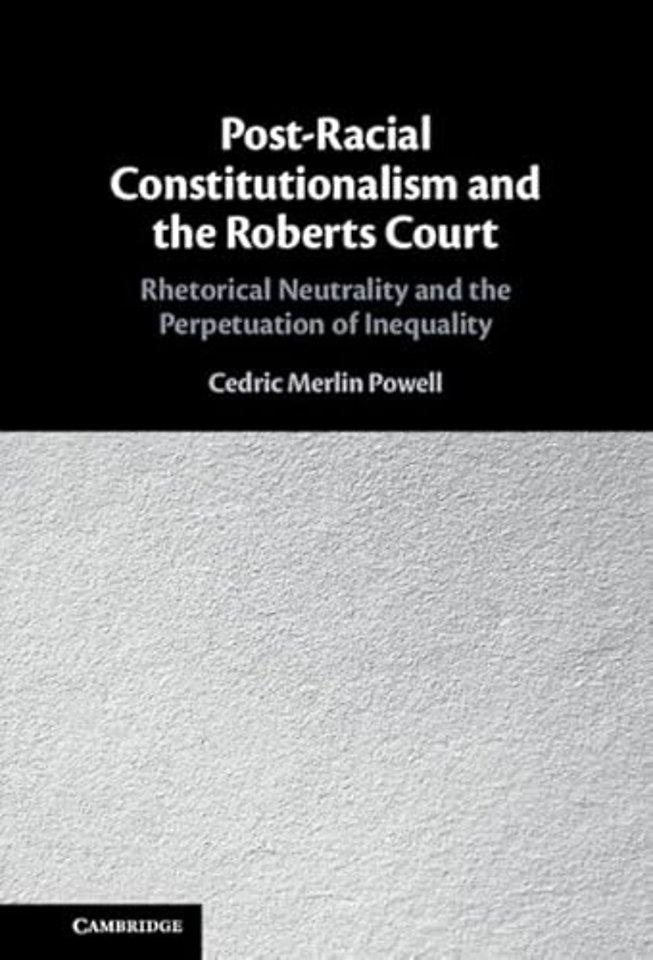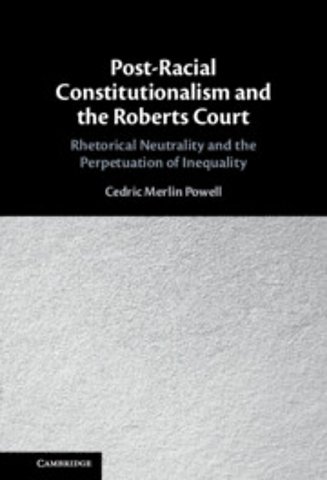Post-Racial Constitutionalism and the Roberts Court
Rhetorical Neutrality and the Perpetuation of Inequality
Samenvatting
Post-Racial Constitutionalism and the Roberts Court: Rhetorical Neutrality and the Perpetuation of Inequality provides the first comprehensive Critical Race Theory critique of the United States Supreme Court under Chief Justice John Roberts. Since being named to the Court in 2005, Chief Justice Roberts has maintained a position of neutrality in his opinions on race. By dissecting neutrality and how it functions as a unifying feature in all the Court's race jurisprudence, this book illustrates the consequences of this ostensible impartiality. By examining the Court's racial jurisprudence dating back to the Reconstruction, the book shows how the Court has actively rationalized systemic oppression through neutral rhetoric and the elevation of process-based decisional values, which are rooted in democratic myths of inclusivity and openness. Timely and trenchant, the book illustrates the permanence of racism and how neutrality must be rejected to achieve true empowerment and substantive equality.
Specificaties
Inhoudsopgave
Net verschenen
Rubrieken
- aanbestedingsrecht
- aansprakelijkheids- en verzekeringsrecht
- accountancy
- algemeen juridisch
- arbeidsrecht
- bank- en effectenrecht
- bestuursrecht
- bouwrecht
- burgerlijk recht en procesrecht
- europees-internationaal recht
- fiscaal recht
- gezondheidsrecht
- insolventierecht
- intellectuele eigendom en ict-recht
- management
- mens en maatschappij
- milieu- en omgevingsrecht
- notarieel recht
- ondernemingsrecht
- pensioenrecht
- personen- en familierecht
- sociale zekerheidsrecht
- staatsrecht
- strafrecht en criminologie
- vastgoed- en huurrecht
- vreemdelingenrecht

